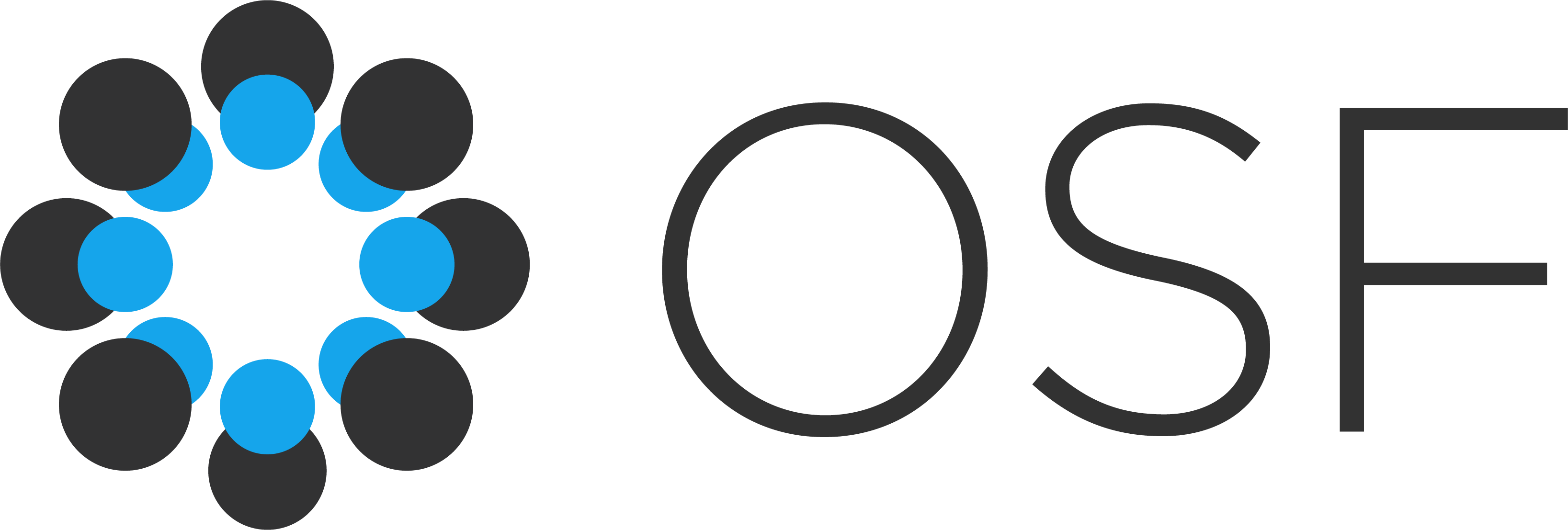Panel : Managing Metadata in the Public Sector
- Long title
- Managing Metadata in the Public Sector: Perspectives from the Government of Canada
- Starts at
- Mon, Oct 21, 2024, 16:00 EDT
- Finishes at
- Mon, Oct 21, 2024, 17:30 EDT
- Venue
- Auditorium
- Moderator
- Michael I Mohammed
Moderator
-

Michael I Mohammed
Government of Canada (TBS)
Michael Mohammed has worked for the Government of Canada for about 15 years, during which time he has held a variety of roles in regulatory development, corporate risk analysis, environmental assessment, nuclear emergency preparedness, issues management, and policy development functions. While he is not an information governance specialist, he does have a solid understanding of how important a role information governance plays in the delivery of complex programs and projects. Michael holds two master’s degrees from Rutgers University, a Bachelor of Arts degree from Mount Allison University, and he is a certified Project Management Professional.
Managing Metadata in the Public Sector: Perspectives from the Government of Canada
The Government of Canada (GC) represents a complex legislative, policy and operational environment in which common information and data management-related policies apply but allow for departments and agencies to exercise discretion and make implementation decisions individually in practice. While GC requirements for managing information and data have been integrated with those for managing information technology, cyber security, and service delivery since 2020, interoperability challenges have persisted that pose risks to the GC’s digital transformation. Adding to the complexity of the current state is the fact that metadata applied today to support present-day government functions and recordkeeping activities may vary from the metadata needed downstream to manage government information throughout its life cycle and preserve archival records over the long term.
To improve federated search across GC information holdings and repositories, increase the GC’s capacity to design services digitally from end-to-end, and reduce barriers to discovering, accessing, exchanging, and reusing GC information and data now and into the future, renewed attention had to be placed on the fact that the open and strategic management of information and data inherently requires that metadata also be managed. Representing Canadian federal public servants with experience in developing and implementing metadata policy requirements across the GC, panelists will explore the merits of focusing the GC’s new Standard for Managing Metadata more holistically on how the Canadian federal government manages the metadata describing its information and data assets across individual departments and agencies and capturing the overall importance of using prescribed metadata standards as a single requirement in this policy context. This panel will also explore the role of artificial intelligence, machine learning, and related technologies for the automatic processing, summarization, and validation of metadata. Additionally, it will include a discussion of the conceptual approach given to archival metadata as set out in Library and Archives Canada’s Operational Standard for Digital Archival Records’ Metadata.
Ultimately, the panel will engage in a focused exchange on the challenges associated with the GC’s policy approach to metadata, and the range of supplementary guidance instruments and governance processes that are needed and have been developed to support its successful deployment across the GC enterprise. Each panel member will take opportunities to discuss their experiences developing or implementing metadata across the GC, as well as the challenges they encountered and opportunities they seized related to that development or implementation process. Time will also be allocated for session attendees to ask questions of panelists.
To improve federated search across GC information holdings and repositories, increase the GC’s capacity to design services digitally from end-to-end, and reduce barriers to discovering, accessing, exchanging, and reusing GC information and data now and into the future, renewed attention had to be placed on the fact that the open and strategic management of information and data inherently requires that metadata also be managed. Representing Canadian federal public servants with experience in developing and implementing metadata policy requirements across the GC, panelists will explore the merits of focusing the GC’s new Standard for Managing Metadata more holistically on how the Canadian federal government manages the metadata describing its information and data assets across individual departments and agencies and capturing the overall importance of using prescribed metadata standards as a single requirement in this policy context. This panel will also explore the role of artificial intelligence, machine learning, and related technologies for the automatic processing, summarization, and validation of metadata. Additionally, it will include a discussion of the conceptual approach given to archival metadata as set out in Library and Archives Canada’s Operational Standard for Digital Archival Records’ Metadata.
Ultimately, the panel will engage in a focused exchange on the challenges associated with the GC’s policy approach to metadata, and the range of supplementary guidance instruments and governance processes that are needed and have been developed to support its successful deployment across the GC enterprise. Each panel member will take opportunities to discuss their experiences developing or implementing metadata across the GC, as well as the challenges they encountered and opportunities they seized related to that development or implementation process. Time will also be allocated for session attendees to ask questions of panelists.
-

Kat Timms
Library and Archives Canada
Kat Timms is a Senior Analyst on the Recordkeeping Strategies team in the Government Record Branch at Library and Archives Canada (LAC). For over 15 years, she has been working at LAC in numerous roles where she has acquired significant experience contributing to and coordinating programs, services, and initiatives related to archival and library operations and metadata. In her work, she has developed and implemented policy in the domains of information management, digital archives, recordkeeping, and archival metadata. She is an author of LAC’s recently published Operational Standard for Digital Archival Records’ Metadata and primary architect of the suite of supplementary guidance currently in development meant to support its use. Kat has significant experience in information standards development including work with the International Organization for Standardization (ISO) and the International Council on Archives (ICA). -

Aliyan Haq
Natural Resources Canada
Aliyan Haq serves as a Geomatics Analyst at the Canada Centre for Mapping and Earth Observation (CCMEO) within Natural Resources Canada. He graduated from the University of Waterloo with both a degree and a diploma in Geomatics and GIS. Aliyan has engaged extensively with key geospatial standards organizations including the Open Geospatial Consortium (OGC), International Organization for Standardization (ISO), and World Wide Web Consortium (W3C). He currently chairs the Canadian Mirror Committee to ISO TC/211 (Geomatics) and leads the Satellite Imagery working group within ISO TC/211, driving the development of several critical standards related to satellite imagery. -

Matthew Moore
Library and Archives Canada
Matthew Moore is the Manager of the Recordkeeping Strategies Team at Library and Archives Canada (LAC) in the Government Records Branch. He has over a decade of experience in the heritage and information management sectors, including working in museums and archives, private sector litigation support, and strategic information management and recordkeeping in the Government of Canada. Currently, his responsibilities include overseeing a series of projects designed to ensure that government information is appropriately managed to safeguard the authenticity and integrity of archival government records including their metadata. His recent work involves managing projects focused on information management advice around records identification and retention, digital transfers, and archival government records metadata requirements. This includes LAC’s recently published Operational Standard for Digital Archival Records’ Metadata and supplementary guidance. He is the Vice-Chair for the Canadian Mirror Committee for the International Organization for Standards (ISO) on archives and records management. -

Marissa Paron
Government of Canada
Marissa Paron is a Senior Analyst and Team Lead at the Treasury Board of Canada Secretariat on the Information and Data Governance Policy and Legislation team within the Data and Digital Policy Sector of the Office of the Chief Information Officer of Canada. Her career in the federal public service spans more than 20 years, with the better part of it dedicated to information and data governance. Prior to joining the Treasury Board of Canada Secretariat in 2020, she spent 13 years at Library and Archives Canada, serving as both a Government Records Archivist and as a Senior Project Officer. She has come to specialize in metadata through her involvement in various projects and initiatives aimed at facilitating the management of government information. Most recently, she led the development of the Government of Canada’s Standard for Managing Metadata and its suite of supplementary guidance instruments published in January 2024. Previously, she participated in the development of international information and documentation standards via the Canadian Mirror Committee on archives and records management for the International Organization for Standardization (ISO). Marissa is a former board member of the United States-based National Association of Government Archives and Records Administrators, past President of the Archives Association of Ontario, and recipient of the Digital Archives Specialist Certificate from the Society of American Archivists. Marissa holds a Master of Arts degree in Canadian Studies, a Bachelor of Arts degree in French, and a Certificate in French Translation Studies from Carleton University in Ottawa, Canada. -

Michael I Mohammed
Government of Canada (TBS)
Michael Mohammed has worked for the Government of Canada for about 15 years, during which time he has held a variety of roles in regulatory development, corporate risk analysis, environmental assessment, nuclear emergency preparedness, issues management, and policy development functions. While he is not an information governance specialist, he does have a solid understanding of how important a role information governance plays in the delivery of complex programs and projects. Michael holds two master’s degrees from Rutgers University, a Bachelor of Arts degree from Mount Allison University, and he is a certified Project Management Professional.





